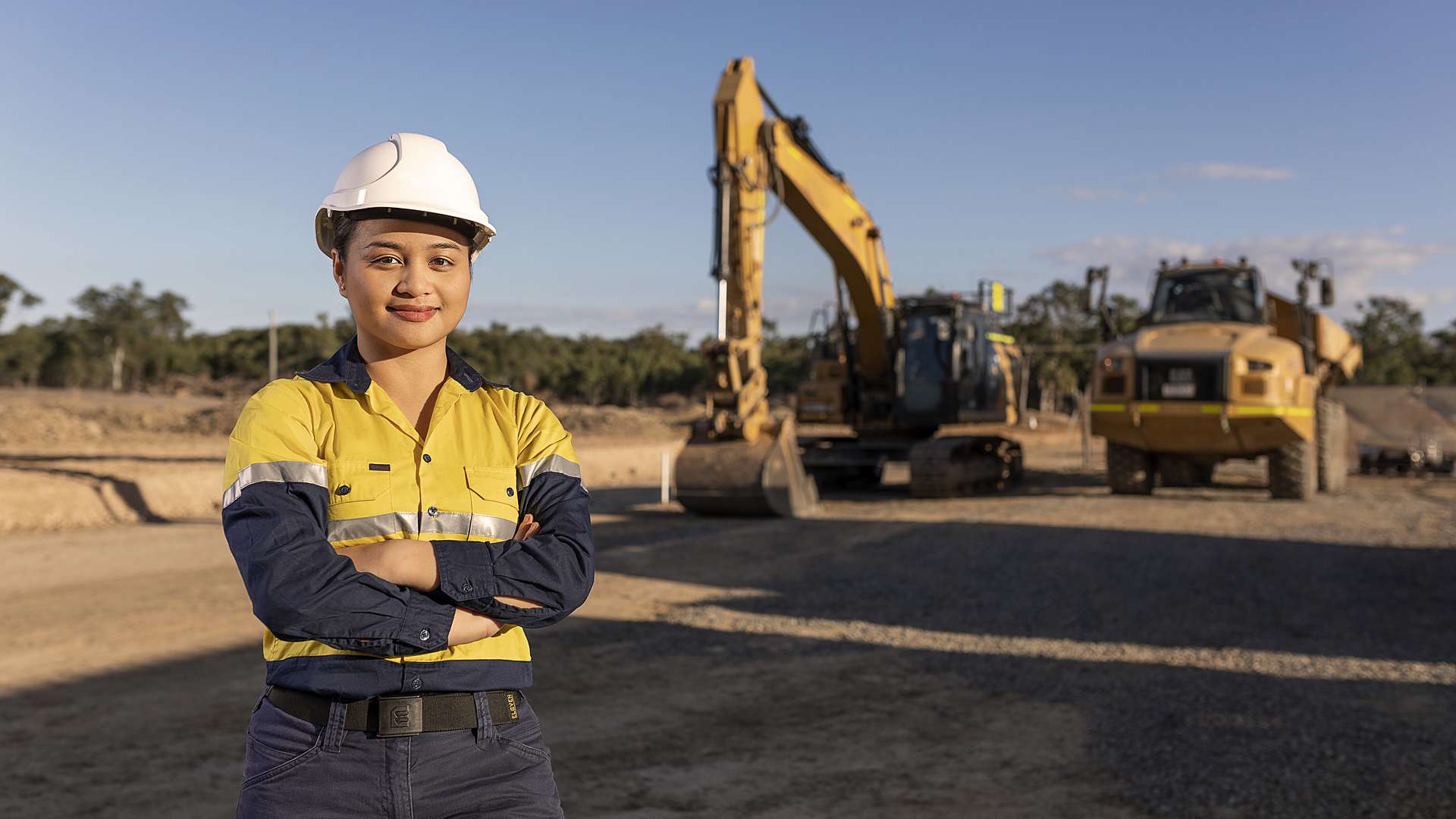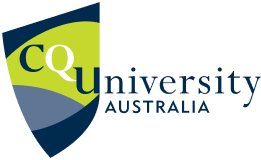Bachelor of Engineering (Honours) and Diploma of Professional Practice (Co-op Engineering)
| Duration | 4.5 years full-time, 9 years part-time |
| Location | Cairns and |
| Next start term | Term 1, 2025 |
| Internship | Yes |
| Study mode | On Campus, Online |
| Course code | CC32 |
| CRICOS | 083587C |
| First-year fee | A$37,230 (Indicative) |

Overview
With extensive work-integrated learning opportunities and 48 weeks of paid industry placement, our Bachelor of Engineering (Honours) and Diploma of Professional Practice (Co-op Engineering) provides you with vast opportunities to gain real-world experience to prepare you for your career as a professional engineer.
Our Bachelor of Engineering (Honours) and Diploma of Professional Practice (Co-op Engineering) features 48 weeks of paid work placement and project-based learning, allowing you to develop the professional skills required to work as an Engineer and graduate with one year of industry experience.
Your education and training will focus on developing skills that are highly desired by employers, such as effective teamwork and problem-solving.
This course's work experience component allows you to put your learning into practice while experiencing different workplace cultures. You have the opportunity to apply for work-integrated learning overseas to enhance your global learning experience.
In addition, you will graduate work-ready and equipped with valuable interview and application skills.
Benefit from the flexibility to tailor your studies and specialise in Civil, Civil with Humanitarian, Electrical, Electrical with Data Analytics, Electrical with Industrial Automation, Electrical with Information Processing, Mechanical, Mechanical with Industrial Automation, or Resources Systems. CQUniversity has strong relationships with industry practitioners, and our close industry links may allow you to gain support through industry-based scholarships.
Career Opportunities
The Bachelor of Engineering (Honours) and Diploma of Professional Practice (Co-op Engineering) is your gateway into the engineering industry. Upon completion, you will be qualified to work as a Professional Engineer in the civil, civil with humanitarian, electrical, mechanical, or resources systems fields depending on your chosen major.
Structure & Availability
Course structure
You are required to complete 12 core units and your chosen engineering major. Your options for majors include:
- Civil (20 units)
- Civil with Humanitarian (20 units)
- Electrical (20 units)
- Electrical with Data Analytics (20 units)
- Electrical with Information Processing (20 units)
- Electrical with Industrial Automation (20 units)
- Mechanical with Industrial Automation (20 units)
- Mechanical (21 units)
- Resources Systems (21 units)
Unit information
For information on the units you could study as part of this course, visit the Handbook and select the "Course Structure" tab.
Credit transfer information
If you have already completed study relevant to the course you have enrolled in, you may be eligible for credit transfer
Mathematics credit option
If you have completed Mathematical Methods in Year 12, you may receive credit for the Foundation Mathematics (MATH11247) unit, which sits in the electrical, mechanical, and civil majors. Please email the College of Engineering and Aviation to learn about how to apply for the mathematics credit pathway.
On-Campus Availability
| Intake | Locations |
|---|---|
| Term 1, 2023 | Cairns, Rockhampton |
| Term 1, 2024 | Cairns, Rockhampton |
| Term 1, 2025 | Cairns, Rockhampton |
Online Availability
| Intake | Locations |
|---|---|
| Term 1, 2024 | Available Online |
Civil major
You will learn about planning design, and maintenance of physical infrastructure systems such as buildings and bridges, harbours and railways. Plus, you'll grow your knowledge and skills in hydraulics and materials science.
Civil with Humanitarian major
This discipline allows you to be involved in the planning design and maintenance of physical infrastructure systems in underprivileged communities and disaster-prone areas.
Electrical major
You will learn about analogue and digital electronics foundations, AC and DC circuit configurations, development and maintenance of controls technology, electrical engineering concepts, communications systems, and materials sciences.
Electrical with Data Analytics major
This major will provide you with specialist skills in computer programming within the field of electrical engineering.
Electrical with Industrial Automation major
This major is an ideal option if you have an interest in the growing electrical automation field. You will develop skills in designing, implementing, analysing and maintaining complex industrial control systems and instrumentation using industry-standard software and hardware tools.
Electrical with Information Processing major
This major is an ideal option if you have an interest in specialist fields of electrical engineering involving analysing system data to monitor and control electrical engineering systems.
Mechanical major
You will build skills and knowledge in planning, design, installation, maintenance and operation of machines, thermodynamic and combustion systems, fluid systems, materials handling systems, manufacturing equipment and process plant.
Mechanical with Industrial Automation major
Develop skills to design mechanical control systems incorporating automation with a strong focus on thermodynamics and heat transfer principles. Plus, you’ll build knowledge on material design, stress analysis and machine design to meet industry standards and codes.
Resource Systems major
Designed to meet the industry need of traditional mine sites to transition to automated sites and increase productivity. This major focuses on the interpretation of data to assess the feasibility of a variety of resource projects within the legislation.
Professional Practice - Engineers Australia
Electrical and Information Processing Major, Electrical and Data Analytics Major, Civil and Humanitarian Major, Mechatronics Major, Mechanical Major, Civil Major
The CC32 Bachelor of Engineering (Honours) Co-op course is fully accredited* by Engineers Australia.
Graduates are recognised as professional engineers and are eligible for Graduate membership with EA.
*The following recently introduced majors have provisional accreditation until there are sufficient graduates for them to be reviewed by EA:
- Electrical with Data Analytics
- Electrical with Information Processing
- Resource Systems
- Civil with Humanitarian
Professional Practice - Engineers Australia
Resource Systems Major
The CC32 Bachelor of Engineering (Honours) Co-op course is fully accredited* by Engineers Australia.
Graduates are recognised as professional engineers and are eligible for Graduate membership with EA.
*The following recently introduced majors have provisional accreditation until there are sufficient graduates for them to be reviewed by EA:
- Electrical with Data Analytics
- Electrical with Information Processing
- Resource Systems
- Civil with Humanitarian
Professional Practice - Engineers Australia
Electrical Major
The CC32 Bachelor of Engineering (Honours) Co-op course is fully accredited* by Engineers Australia.
Graduates are recognised as professional engineers and are eligible for Graduate membership with EA.
*The following recently introduced majors have provisional accreditation until there are sufficient graduates for them to be reviewed by EA:
- Electrical with Data Analytics
- Electrical with Information Processing
- Resource Systems
- Civil with Humanitarian
Industry Practice 1 - ENEP11006
24 weeks industry placement
Industry Practice 2 - ENEP12010
24 weeks industry placement
The above industry placements you complete are paid placements in your relevant field of engineering and are coordinated by the University.
Requirements
Recommended study
Recommended study: Mathematical Methods, Physics, and Design
English (Units 3 & 4, C) or equivalent; General Mathematics (Units 3 & 4, C) or equivalent
English Language Proficiency Requirements:
If you were not born in Australia, Canada, New Zealand, United Kingdom, Ireland, South Africa or the United States of America you are required to meet the English Language Proficiency requirements set by the University. Applicants are required to provide evidence of completion within the last 10 years of:
- A secondary qualification (Year 11 and 12, or equivalent), or
- A completed Australian Qualifications Framework (AQF) Diploma level qualification; or
- Bachelor level qualification study for a period of at least 2 years full-time with a minimum overall GPA 4.0
Completed in Australia, Canada, New Zealand, United Kingdom, Ireland, South Africa or the United States of America, which will meet the English proficiency.
If you do not satisfy any of the above you will need to undertake an English language proficiency test and achieve the following scores:
- An International English Language Testing System (IELTS Academic) overall band score of at least 6.5, with a minimum 6.0 in each subset; or
- An Occupational English Test with Grades A or B only in each of the four components; or
- Pearson Test of English Academic (PTE Academic) - Requires an overall score of 62 with no sub-score less than 54; or
- Test of English as a Foreign Language (TOEFL) iBT – 79 or better overall and no score less than 21
English test results remain valid for no more than two years between final examination date and the date of commencement of study, and must appear on a single result certificate.
If you are an International student please visit International students English requirements for further information.
Each student will be assessed individually.
Fees & Scholarships
2024 Indicative Fees
| Fee Type | Fees |
|---|---|
| International Indicative First Term Fee | A$18,510 |
| International Indicative First Year Fee | A$37,230 |
Please note the following important information:
- Fees are in Australian dollars (A$).
- Fees are indicative only and do not cover additional costs such as textbooks, accommodation, visa applications, OSHC, general living etc.
- Fees are based on a full-time study load and the final fee payable will be determined by your selection of units and if any credit was awarded for recognition of prior learning.
- The University reserves the right to amend fees at any time during the course. Fees are reviewed yearly and may increase in the following year to enable CQUniversity to continue to provide quality services and facilities to students.
- Courses are subject to change at the discretion of the University.
- It is your responsibility to make yourself aware of the entry requirements and prerequisites of the courses you wish to undertake.
- The typical annual fee shown provides an estimate of the tuition fees for the first year of the course in the same academic year. This estimate assumes a full-time study load of 4 units per term (based on two terms).
- Students not on an Australian student visa can only undertake courses online from an overseas location.
- Courses undertaken online may be studied on a full-time or part-time mode.
- International students studying on-campus in Australia may take no more than 33 per cent of their entire course by online education, and this option cannot be taken in its entirety during a compulsory term (Term 1 and Term 2).
Please refer to our international course fees page.
We offer a range of scholarships to support international students and encourage you to apply for one that's right for you.
How to apply
Our easy to use online application system for international students will guide you through the process of applying for a course at CQUniversity Australia.


